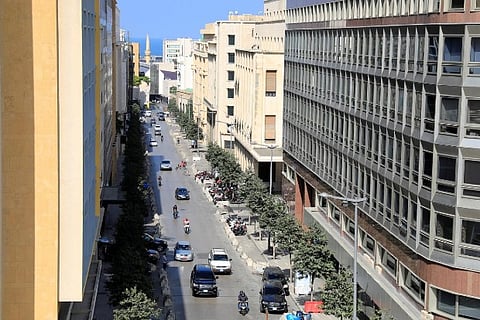

Chennai
If we place ourselves at the bottom left corner of the living room window around 6 pm, and press our cheeks hard against the glass, we might just catch them staring blankly at the empty street. The other day, our eyes met across the driveway, yet there was none of the usual awkwardness — being stared at felt more like a relief than an invasion. Before the pandemic, I had never spoken to them, but right now even these stolen glances feel like a precious form of contact. When I first saw the videos coming from Italy under lockdown, with people quarantined in their apartments connecting through music, my first reaction was one of awe. My second was one of longing for the architectural element that made these gatherings possible: the balcony.
By suspending ordinary social life, the pandemic is teaching us to value what we normally take for granted. For those like me who grew up around the Mediterranean, the balcony is a fact of life — one so woven into the fabric of our cities as to be practically invisible. How I wish I had one now. As a child growing up in Beirut, it was on the balcony that we celebrated birthdays, that I read my first novels, and that I watched my parents play endless games of backgammon. As an adult returning home for the summer, that is where my feet carry me to sip a coffee, crack open a beer — always in the company of others in surrounding buildings who appear to be doing the same.
Even now, with the city brought to a standstill by COVID-19 and a suffocating financial crisis, Beirutis are turning to their balconies for momentary respite and gestures of solidarity.
The genius of the balcony is to assemble people who live within proximity, but who are otherwise strangers, around a common world of events, experiences and issues. The balcony is fulfilling this role to great acclaim today, but that is what it does, silently, in ordinary times.
A balcony is a strip of private property suspended over public space. On a balcony, one is outside, yet at home; exposed, yet secluded. This ambivalence manifests in Beirut in the use of a distinctive sartorial code. The balcony is the domain of the nightgown and the under-shirt: items too revealing for the street, yet modest enough to be worn at a distance.
The balcony supports a distinctive type of reserved sociability. Its contiguity with the dwelling facilitates access to city life just as easily as it enables withdrawal from it. In my district of Beirut, where most buildings are five or six stories high, the balcony is close enough to the street to greet someone down below, but just too far to hold a prolonged conversation; close enough to witness a dispute, far enough not to have to get personally involved. It offers company without the demands of intimacy.
Yet the danger in thinking of balconies as private amenities is that it obscures their standing as a public good. As city dwellers, we all benefit from the social life they foster even though we may individually prefer to enclose our own. It is for this reason that public regulation might be called for: not to prevent each of us from getting what we want, but to help avert a collective outcome resulting from such wants — a thinning of the social fabric of the city — that we might, collectively, come to regret. The first few weeks after COVID-19 may be all hugs and kisses. But reserved sociability is not a second best, and we should continue to look kindly at the architecture that makes it possible even after the pandemic leaves us.
— Zacka is an assistant professor of political science at MIT. NYT © 2020
The New York Times
Visit news.dtnext.in to explore our interactive epaper!
Download the DT Next app for more exciting features!
Click here for iOS
Click here for Android